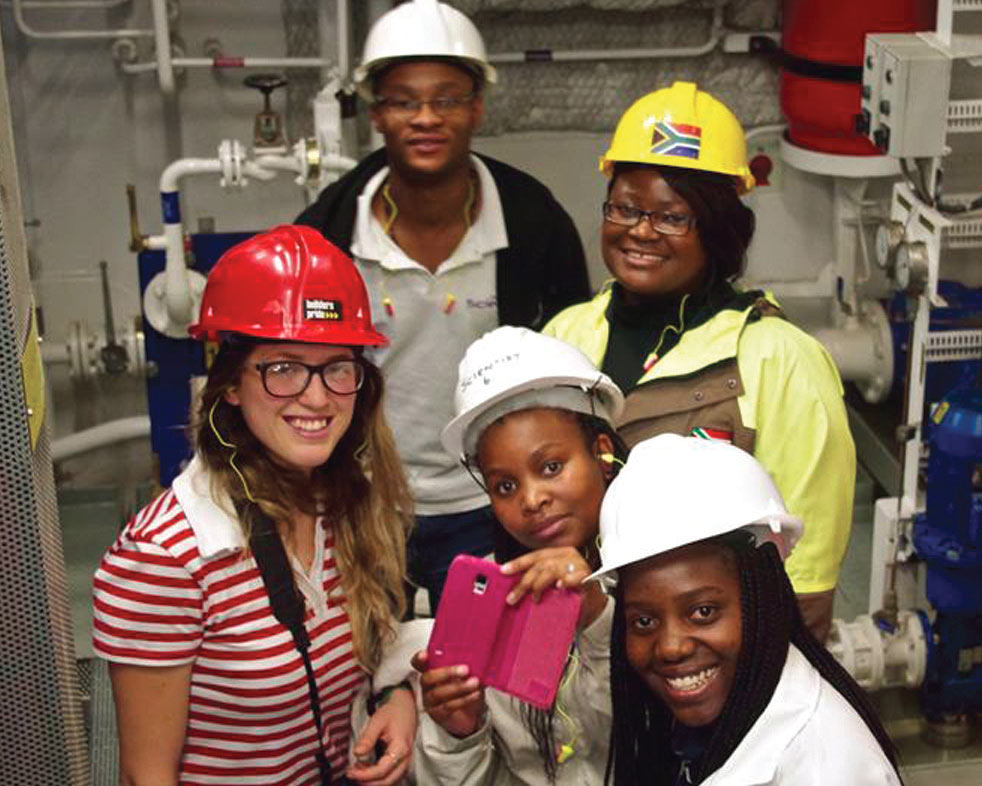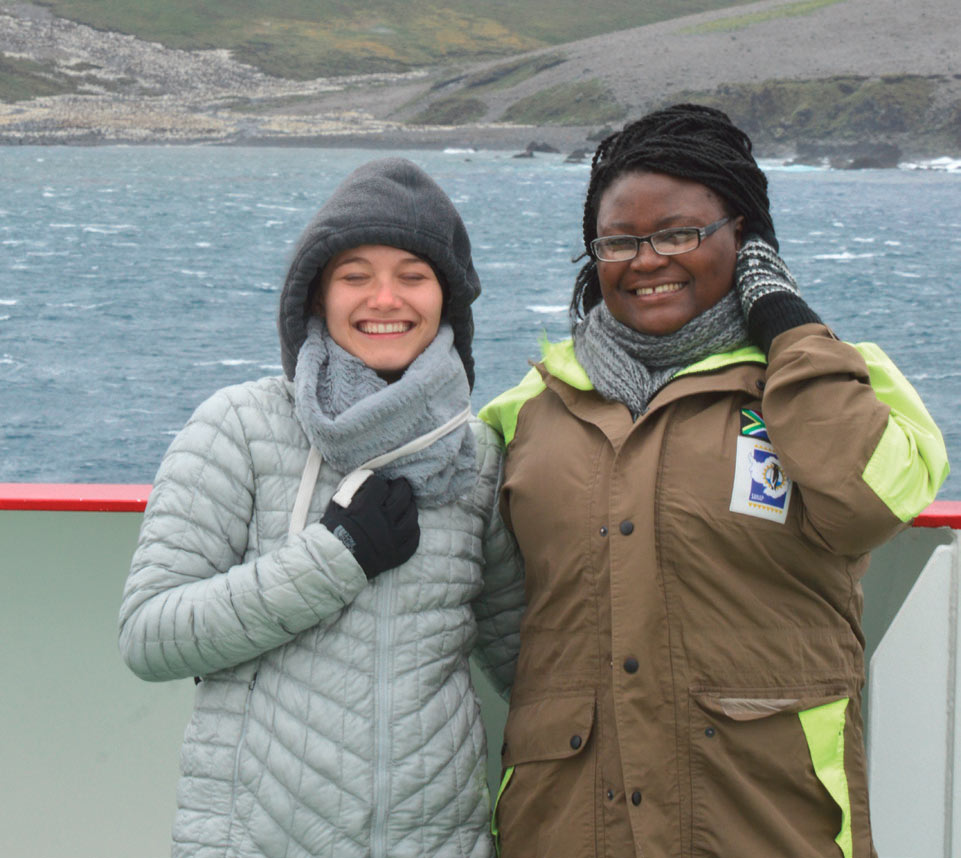It was winter time in 2015. Sandra Phoma and Mubanga (Helen) Kabwe had never seen the sea before. This all changed the moment they boarded the SA Agulhas II, ready to depart on a winter cruise to the Southern Ocean.
At the time both Sandra and Helen had just completed their MSc studies under the supervision of Professor Don Cowan of the Centre for Microbial Ecology and Genomics (CMEG) with Dr Eldie Berger as co-supervisor. Their research project was part of an NRF-funded Blue Skies programme under Dr Thulani Makhalanyane, also of CMEG, aimed at understanding the composition and role of marine microbial ‘dark matter’.
As part of their research, Sandra and Helen were involved in the sampling strategy which aimed to use culture-independent techniques to understand the composition and functional role of the marine micro-environment in atmospheric carbon cycling and its possible impact on climate change. Their task was to obtain a series of varying depth water samples along a north-south transect. To obtain the seawater samples from various depths, they used sophisticated CTD (conductivity, temperature and depth) sampling equipment lowered by winch from the shipside. An excellent set of samples was recovered and returned to the CMEG laboratory, where DNA sequencing to identify the species and gene diversity has been completed.
The SA Agulhas II cruise lasted four weeks during which time the two students collected water samples at different sampling sites. They became skilled winch operators, working long hours in heavy seas, strong winds, sea-ice and snow. It was a physically and mentally exhausting experience, and quite harrowing at times. The nature of the Southern Ocean, especially the “Roaring Forties” (strong westerly winds found in the Southern Hemisphere between the latitudes of 40 and 50 degrees), created much discomfort. The ship sailed all the way to the sea-ice margin at 57 degrees South.
Another member of the CMEG research team who collected samples for her Master’s studies on board SA Agulhas II on two of its cruises is Storme de Scally. Her research focuses on inducing ocean acidification (OA) in the laboratory environment to determine what effect OA will have on the microbial communities and their functionality in Southern Ocean seawater.
Storme recalls her research adventure: “Taking samples during SA Agulhas II’s Marion Island Relief Voyage was the most incredible and educationally informative experience of my life. Not only is the ship a fully equipped laboratory facility, it also has extremely friendly staff and scientists. We spent most of our time in the wet laboratory, filtering water samples for later DNA/RNA extraction in the CMEG laboratory, working in shifts over 24-hour periods. At one station we also collected 400 litres of water to use for my OA experiment at CMEG. As the Marion Island Relief Voyage transports over-winterers to and from Marion Island, we were able to leave the ship for a day and hike on this beautiful sub-Antarctic island, which harbours incredible birdlife.”
 Back: Ramontsheng Rapolaki, PhD student at UCT, and Sandra Phoma, PhD student at UP. Front: Katherine Moffett, MSc student at UCT, Dr Tshoanelo Miya, Project Investigator at the University of Free State and Mubanga Kabwe, a PhD student at UP.
Back: Ramontsheng Rapolaki, PhD student at UCT, and Sandra Phoma, PhD student at UP. Front: Katherine Moffett, MSc student at UCT, Dr Tshoanelo Miya, Project Investigator at the University of Free State and Mubanga Kabwe, a PhD student at UP.
 Storme de Scally and Sandra Pho
Storme de Scally and Sandra Pho